Examining Legislation and Ethics in the UK Travel and Tourism Sector
VerifiedAdded on 2023/04/04
|11
|894
|84
Essay
AI Summary
This essay provides a comprehensive overview of the legal and ethical considerations within the UK's travel and tourism sector. It begins by introducing the importance of this sector to the UK economy and the necessity of government support and regulation. The essay then delves into specific legislations, such as the Development of Tourism Act 1969, the Transport Act of 1980 and 1985, and the Package Travel, Holidays and Tours Regulations 1992, highlighting their impact on tour operators and consumer protection. Furthermore, the analysis extends to surface, sea, and air transport laws, detailing the Carriage and Passenger by Road Act 1979, the Carriage by Rail Act 1972, and the Athens Convention 1974, emphasizing passenger rights and carrier liabilities. The essay concludes by underscoring the responsibilities of carriers to ensure passenger safety and compensate for losses incurred due to negligence, ultimately painting a picture of a legally governed and ethically mindful tourism industry in the UK. Desklib provides a platform to access more such solved assignments for students.
1 out of 11
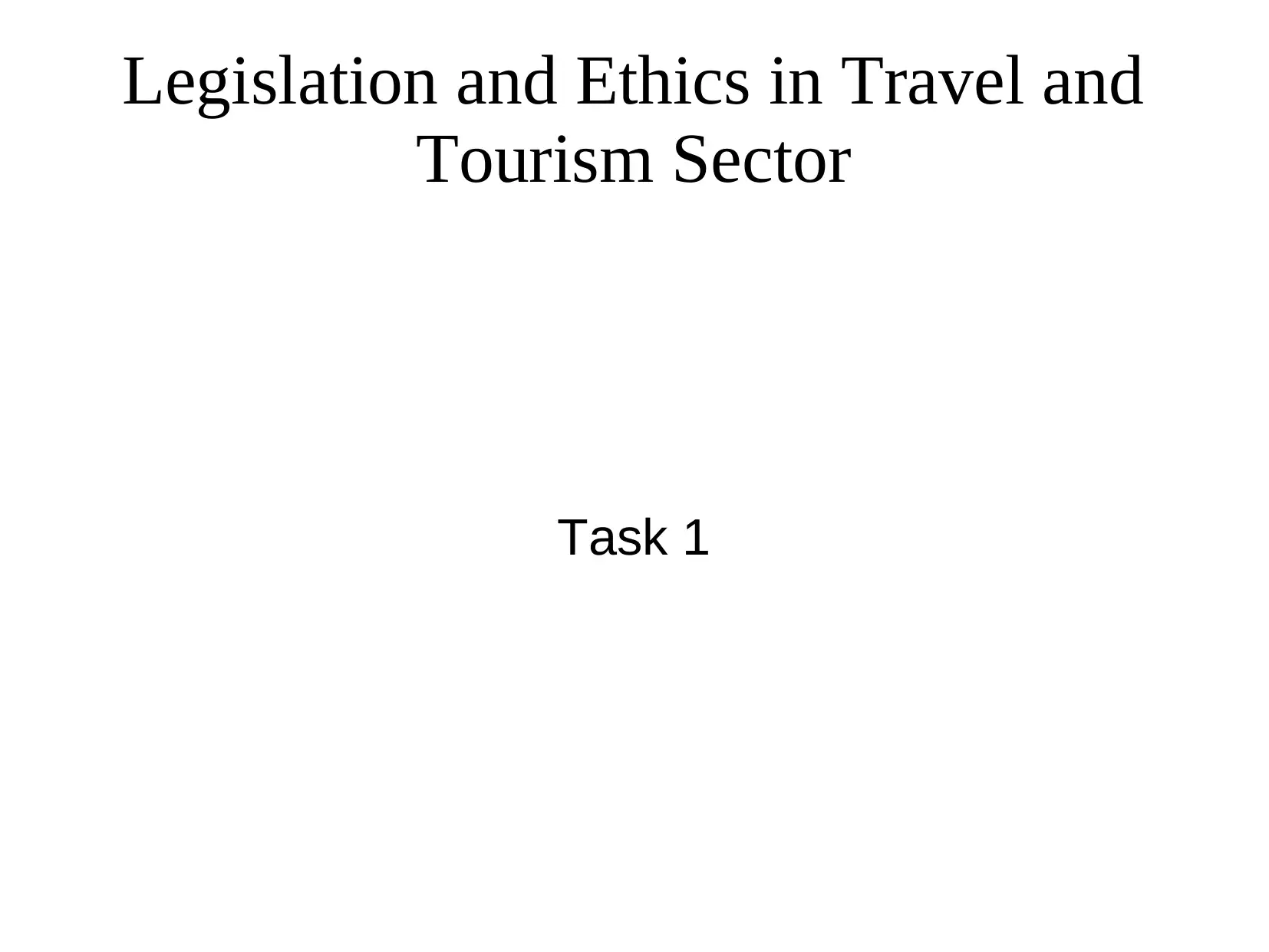
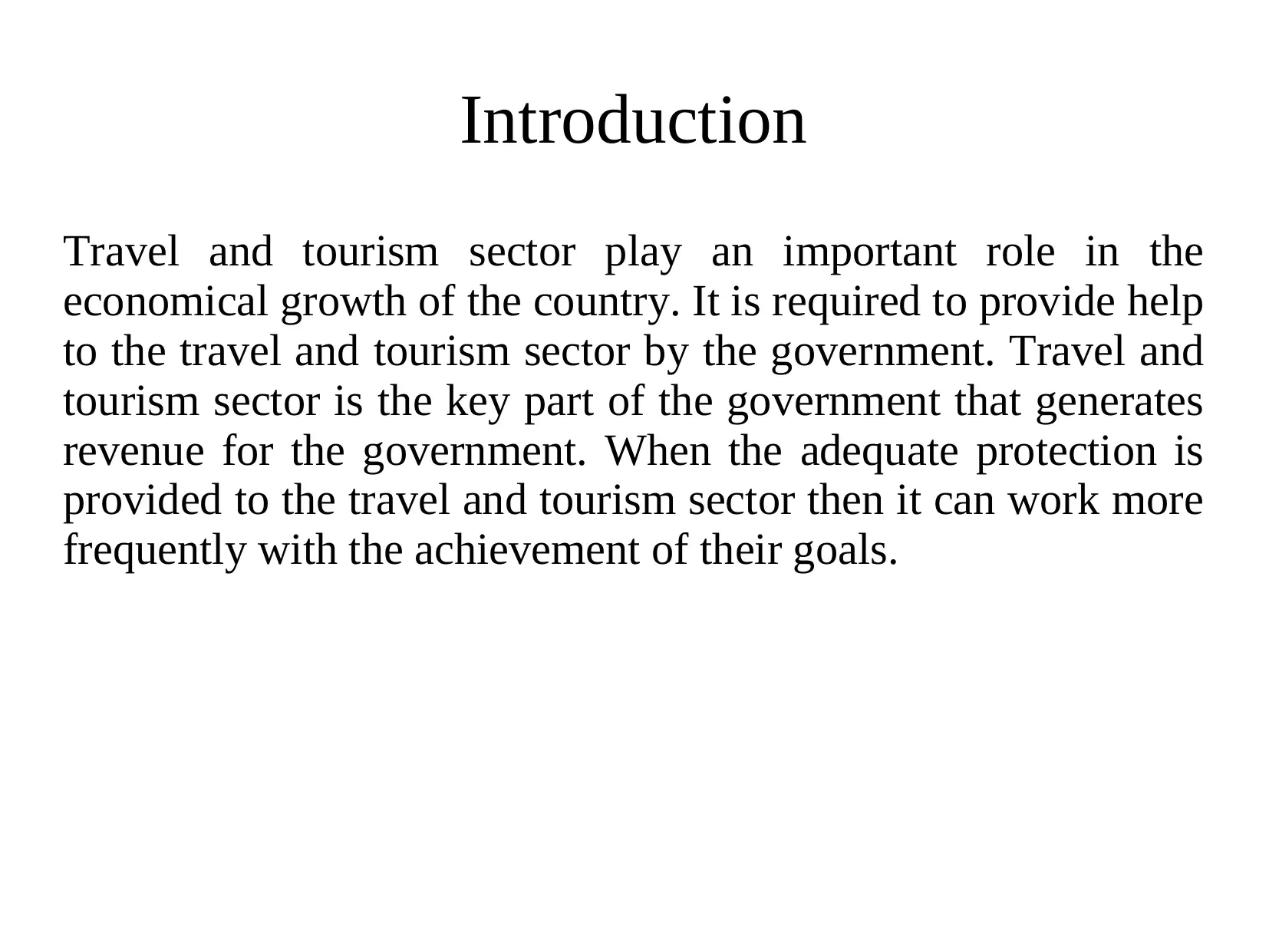
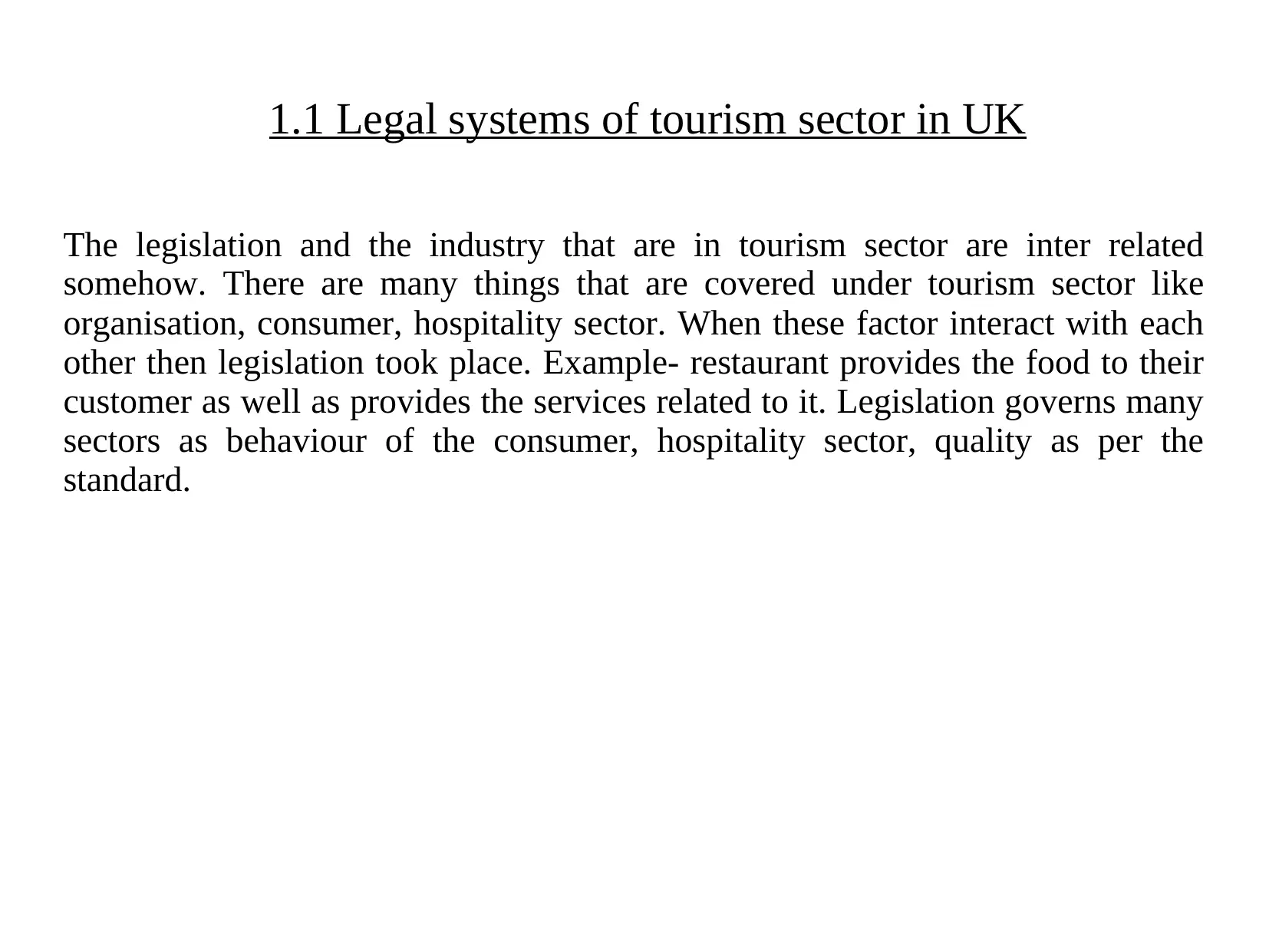

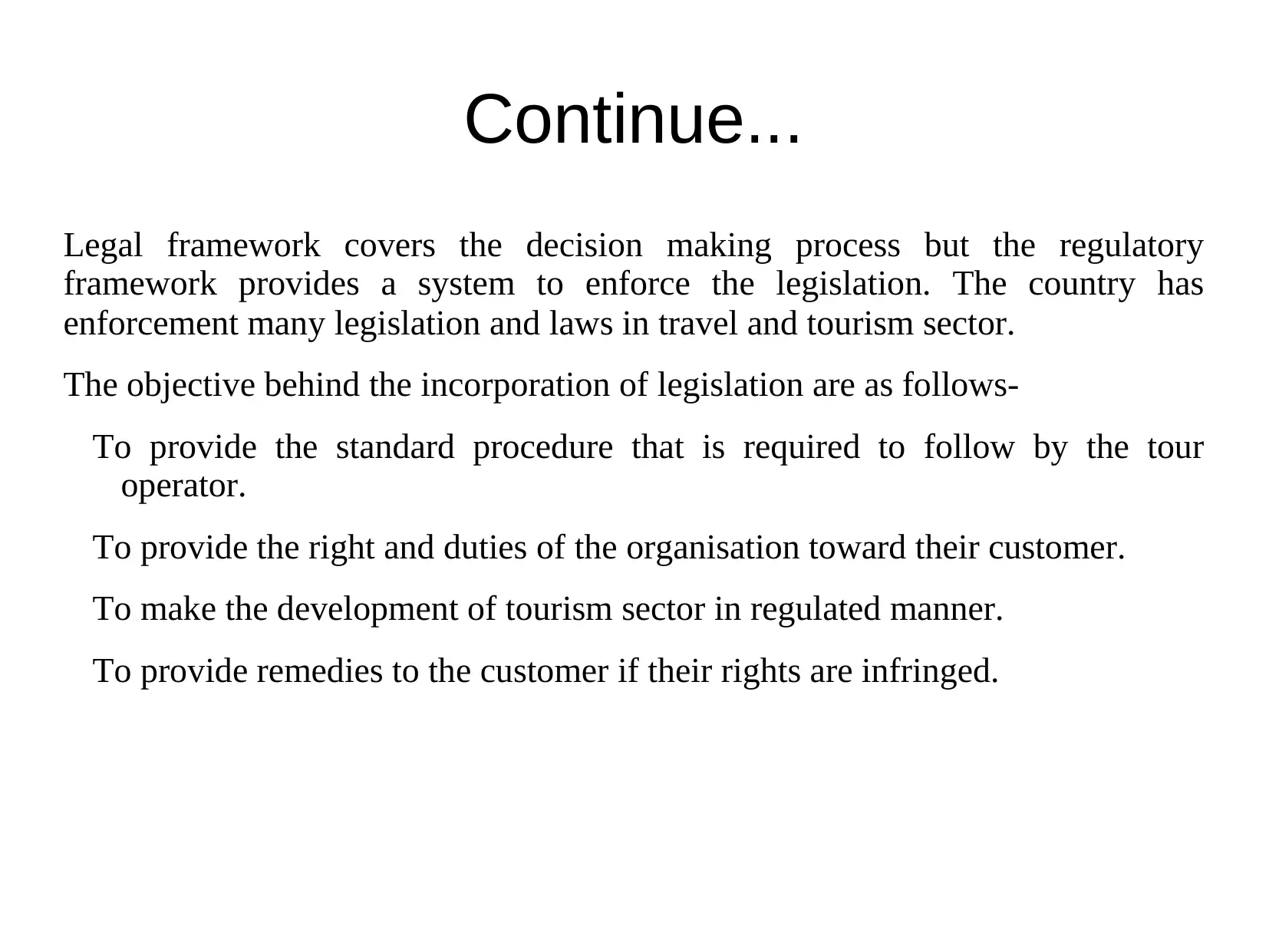
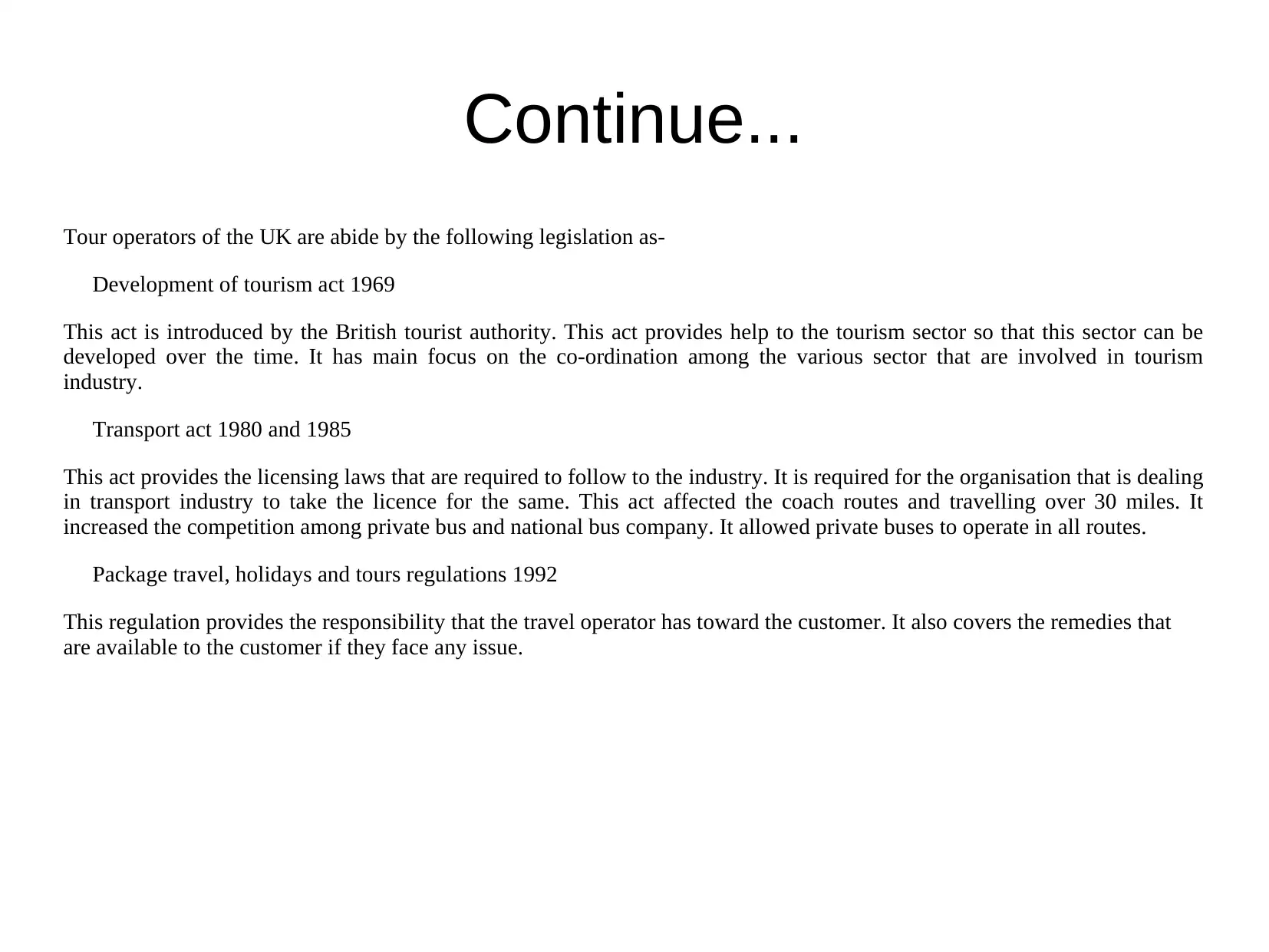
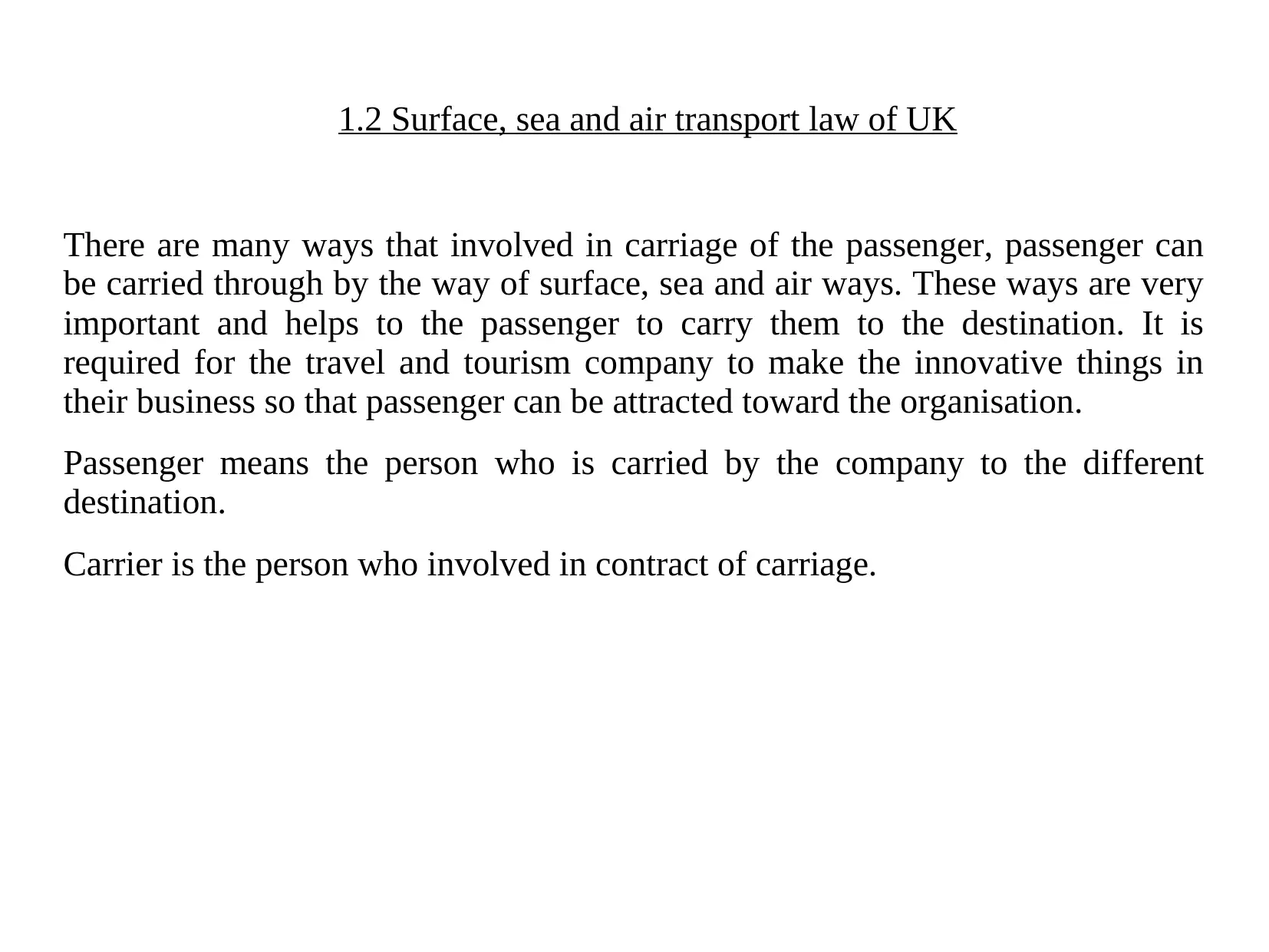
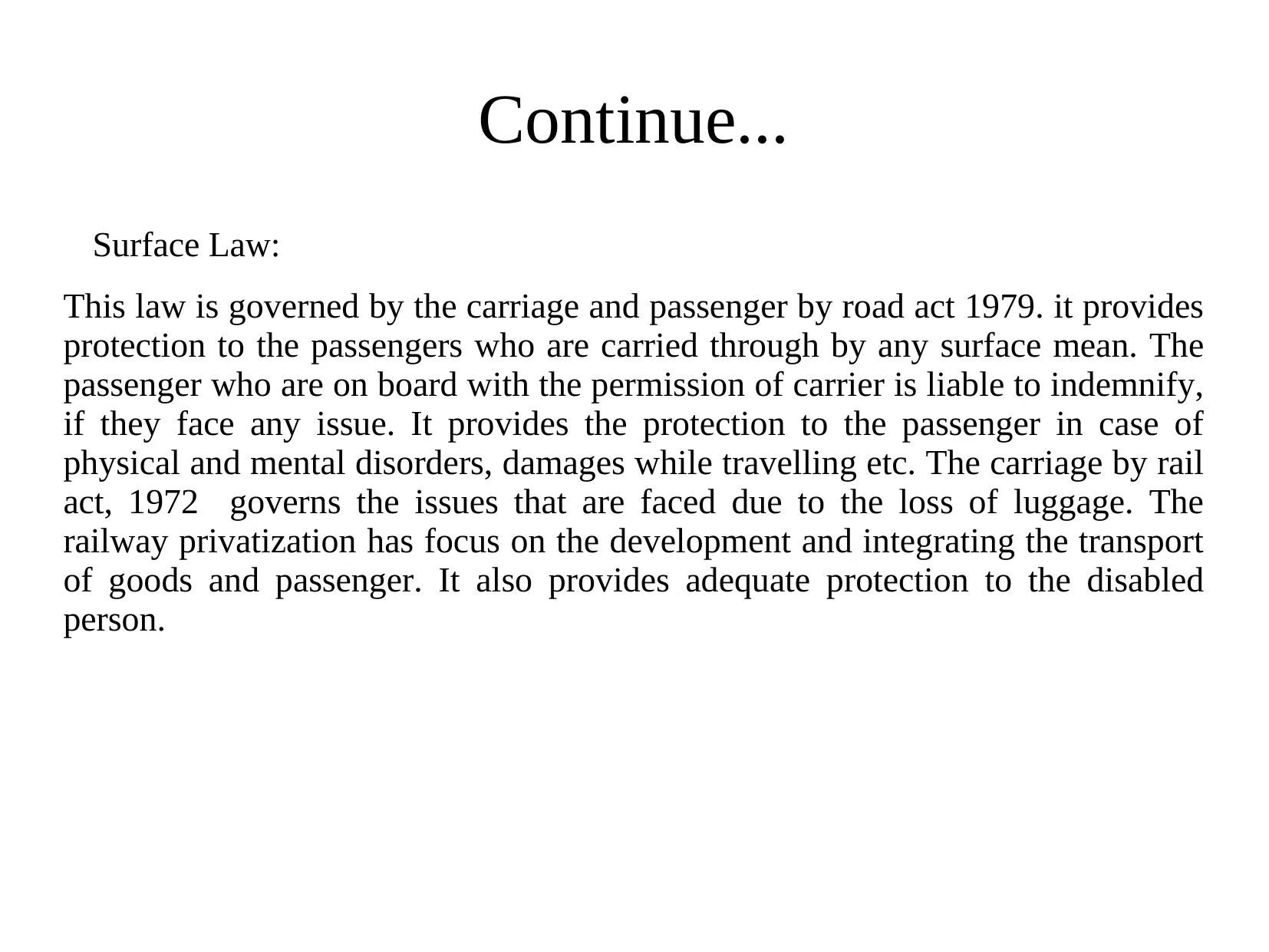
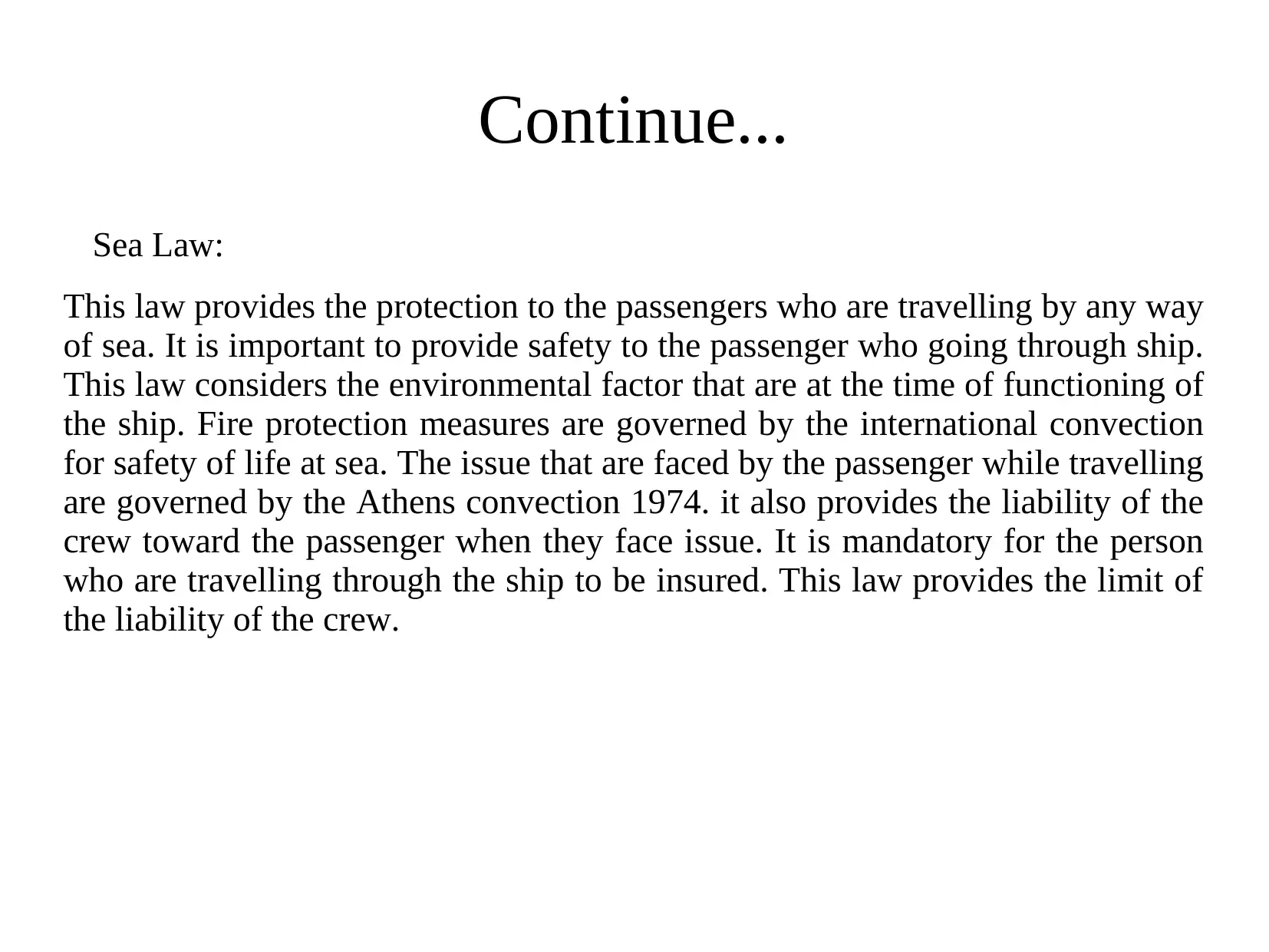
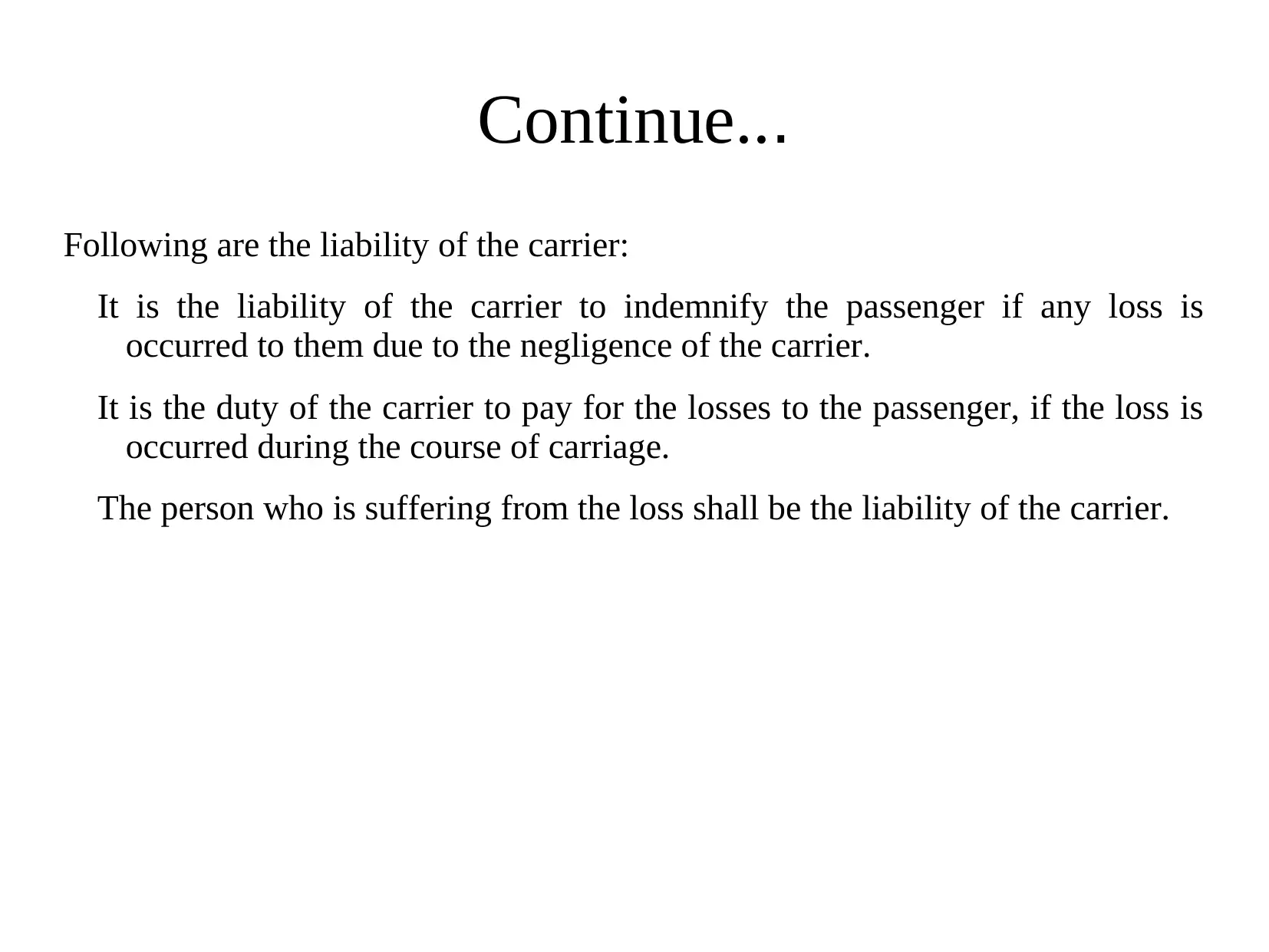
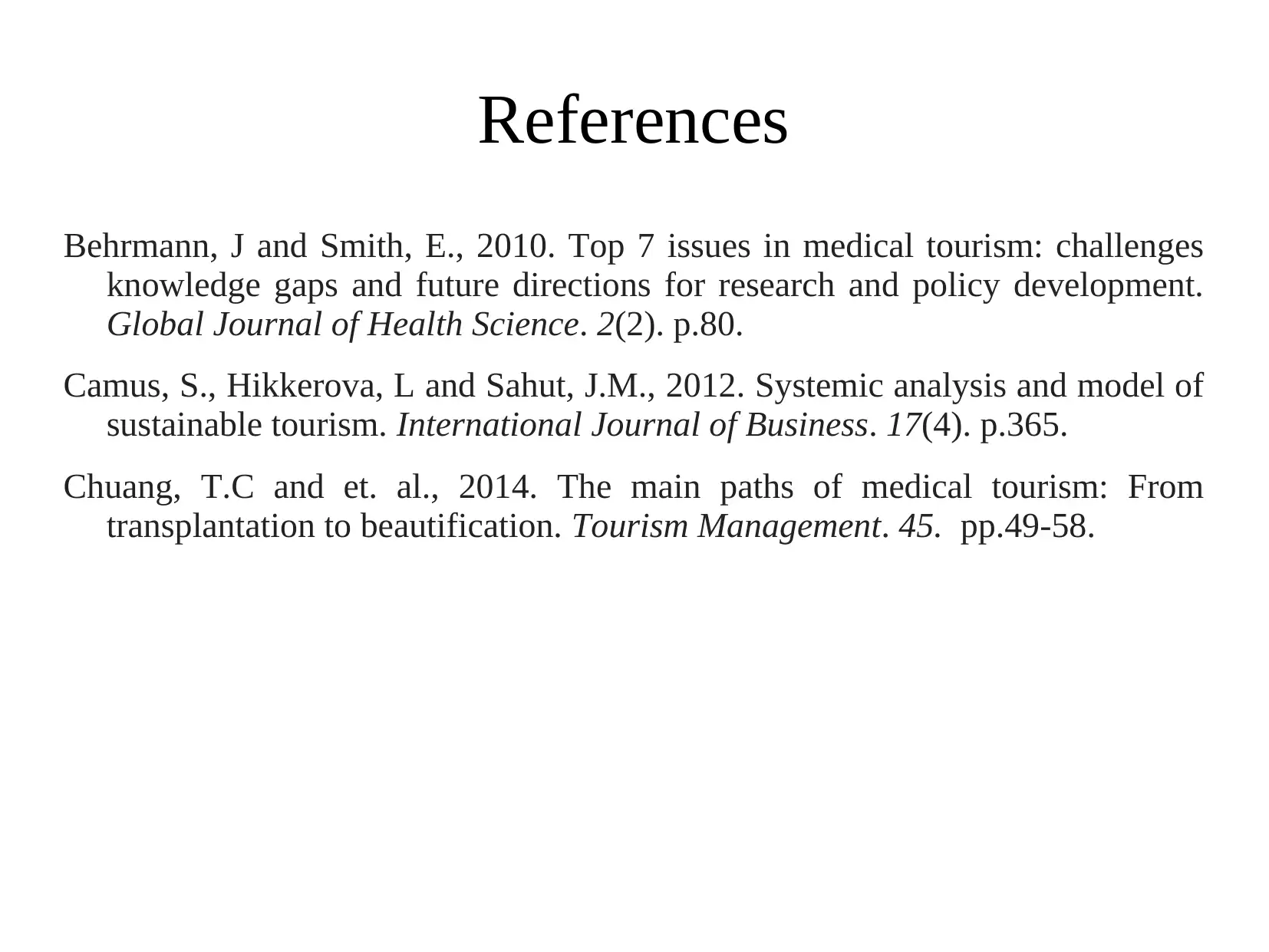







![[object Object]](/_next/static/media/star-bottom.7253800d.svg)